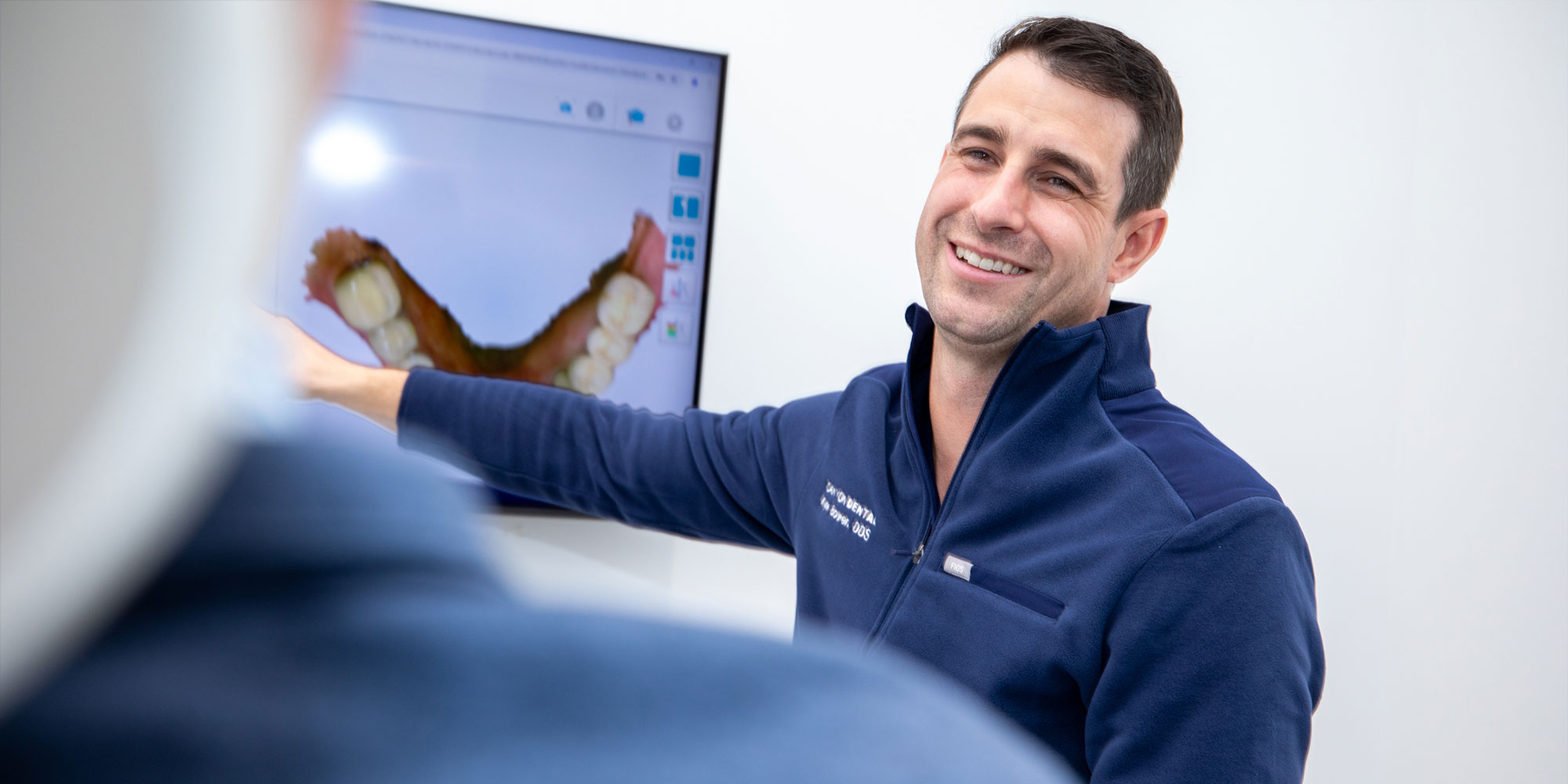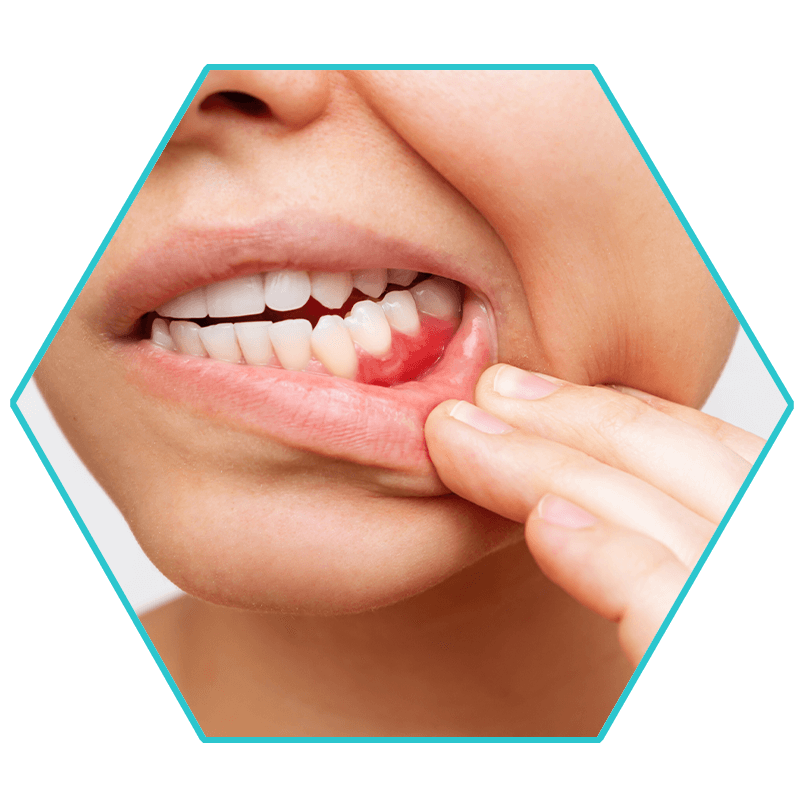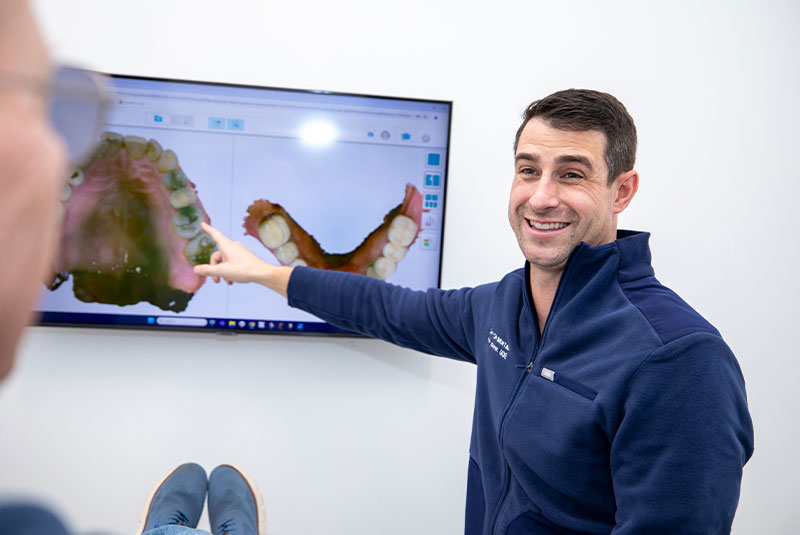
Reclaim Healthy Gums with Advanced Periodontal Care
Periodontitis, commonly called gum disease, can adversely affect oral health. Periodontal disease typically arises from poor oral hygiene practices, leading to the accumulation of bacterial plaque. When this plaque calcifies beneath the gumline, it becomes tartar. This advanced stage of gum infection can damage the soft tissues surrounding the teeth, resulting in inflammation and discomfort in the gums.
Individuals suffering from periodontal disease may notice symptoms such as bleeding and receding gums, gingivitis, and increased tooth sensitivity. Acknowledging the significant repercussions of gum disease, our team at Canyon Dental offers a range of periodontal disease treatments to restore gum health for patients in Orem, UT!

Is Your Smile at Risk? Here’s the Warning Signs of Gum Disease
- Swollen gums
- Tooth pain or sensitivity
- Receding gums
- Tender gums
- Receding gums
- Persistent bad breath
- Loose or shifted teeth
Experience Top-Notch Care for Gum Disease
At Canyon Dental, we have extensive experience diagnosing and treating gum disease, ensuring you and your family receive the best care for healthier gums and teeth. Gum disease can be prevented with proper oral hygiene, regular dental checkups, and professional cleanings, which help eliminate plaque buildup before it becomes a serious issue.
If you’re already experiencing symptoms like bleeding gums or increased sensitivity, our team offers effective treatment options tailored to your needs. We also understand that the cost of treating gum disease can be a concern, which is why we provide flexible financing options to make these essential treatments more affordable and accessible to all our patients.

Our Gentle Gum Disease Treatments
Peri-implantitis is an inflammatory condition affecting the tissues around dental implants, often due to infection of the surrounding soft tissue, leading to tissue degradation. Symptoms include pain, swelling, and difficulty biting or chewing, and untreated cases can result in implant failure.
Management typically involves mechanical debridement to remove infected tissue and bacteria, along with antimicrobial treatment, aiming to decontaminate the area and prevent infection from spreading to the jawbone.
Scaling and root planing address gum disease through thorough cleaning beneath the gumline. The scaling process involves removing plaque and tartar both above and below the gumline, ensuring that the cleaning extends to the deepest part of the periodontal pockets.
Following this, we will perform root planing, which involves smoothing the tooth roots’ surfaces to facilitate the gums’ reattachment to the teeth. This procedure may necessitate multiple appointments and could involve the use of a local sedative.
A frenectomy is a dental procedure designed to remove or modify the frenulum, a small tissue band that restricts the movement of the lips or tongue. This intervention can be performed on the labial frenulum at the lip or the lingual frenulum located under the tongue.
It is usually recommended when the frenulum is overly tight or thick, which can cause problems like speech difficulties, limited mobility, or complications with other dental treatments.
A gingivectomy involves removing excess gum tissue to improve the health and appearance of the gums. It is often recommended for patients with gum disease, especially those with severe gum overgrowth or deep pockets between the teeth and gums.
The procedure can help eliminate infected tissue, reduce inflammation, and make it easier to clean the gums properly. Gingivectomies can also be performed for cosmetic reasons, reshaping the gums to create a more balanced and aesthetically pleasing smile.

